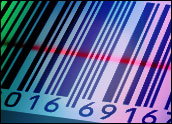
Ask any box office expert to name the holy trinity of movie attendance and they’ll tell you: big screen, big sound and immediacy — getting to see a movie when it’s released.
With improving home entertainment systems rapidly undermining the first two tenets of attendance, how long will it be before the third leg of the triangle falls? No one knows. However, if it does, some researchers at UCLA plan to be there to catch it.
The group — part of the university’s Wireless Internet for the Mobile Enterprise Consortium (WINMEC) — is working on a Digital Rights Management (DRM) scheme that uses Radio Frequency Identification (RFID) to prevent the unauthorized use and copying of movie DVDs.
Prototype Soon
According to WINMEC Director Rajit Gadh, initial research on the hardware and software system has been completed and a prototype is in the works. “We should have a prototype by the end of the summer,” he told TechNewsWorld.
On the drawing board is a system that would embed an RFID tag into a DVD. Today those tags are used for everything from inventory control at Wal-Mart to paying for gasoline at Exxon/Mobil stations.
The tagged DVD would have to be played in a DVD player with hardware for reading the information in the tag. That information would be controlled by the owners of the content on the disc.
The technology, theoretically, would provide a secure way to distribute movies so Hollywood would be able to feel confident about distributing DVDs of movies as they’re released in theaters.
How does Hollywood make money: sale of the DVDs, which will cost more than conventional DVDs, and, theoretically, by gaining consumers who would not be going to theaters for first-run movies because they have elaborate home entertainment systems.
Middle Ground Solution
Gadh explained that the proposed system lies in the middle ground of a DRM spectrum running from totally unencumbered use of digital content to use restricted to a single hardware device.
“This solution is a bit tighter than the completely-free-for-all solution,but it’s a little looser than being tied down to one player and one user,”he said.
Asked if the RFID approach was better than existing DRM schemes or would thwart piracy of DVD content, Gadh replied: “This is yet another technology that can be available eventually to studios that would allow another distribution mechanism of the content. In terms of piracy and all, I don’t know what effect it could have on piracy.”
Better for Pirates?
However, Rob Enderle, president and principal analyst with the Enderle Group in San Jose, Calif., asserted that while RFID might be tough to crack, it won’t make entertainment executives feel less anxious about releasing DVDs of movies as they appear in theaters.
He explained that RFID might foil digital pirates, but not analog ones.Instead of taping a movie off the big screen, they’ll tape it off a HDTV or computer display. “That will probably prevent the adoption of this for first-run films as the content owners will be reluctant to provide a media form that will make it easier than filming in theaters currently is,” he told TechNewsWorld via e-mail.
Some DRM experts are very skeptical of using an RFID solution to manage the content of DVDs.
“While there are some benefits to such a system, I’m not sure they outweigh the problems,” Ray Wagner, research vice president for the Gartner Group in Stamford, Conn., told TechNewsWorld via e-mail. “I’d say that in my opinion, this solution does not, at first blush, look like a winner.”
Waving DRM Flag
Vamsi M. Sistla, director of broadband and digital media at ABI Research in Oyster Bay, N.Y., questioned the viability of the technology in the market. “There are just too many barriers to get this technology to the marketplace,” he told TechNewsWorld.
While using RFID as a DRM vehicle is just getting off the ground, he explained, other technologies, such as a DVD version of the “broadcast flag,” are already in an advanced stage of development. The flag approach would create DVD players that would only read discs that contained codes proving their authenticity.
Ted Schadler, a principal analyst with Forrester Research in Boston, explained in an e-mail to TechNewsWorld that the next generation of DVD disc will use a technology called broadcast encryption, developed by IBM, Sony, Intel, Microsoft, Disney and others to accomplish the same goal as what’s proposed in the RFID scheme.
Too Many Hurdles
Another hurdle for an RFID system, he contends, is the need for a network connection to plug into a database of access privileges. “This eliminates today’s DVDs and DVD players from participating,” he said. “That means that a new DVD player technology would have to be built — and networked.”
Jarad Carleton, an IT industry analyst with Frost & Sullivan in Palo Alto, Calif., told TechNewsWorld via e-mail, “No matter how I view this proposed solution to the movie pirating problem, I see very high business hurdles that I don’t think can be overcome.”
“Remember DIVX DVD rentals?” he asked. “If UCLA works out the technology for this and it eventually hits the market, I predict a similar market rejection.”
“Pirated movies are prevalent around the world for one reason and one reason only — money,” he declared. “When you pay $10 or more to see a movie and it’s a bad film, you feel robbed, and frankly, you have been robbed.”




















































